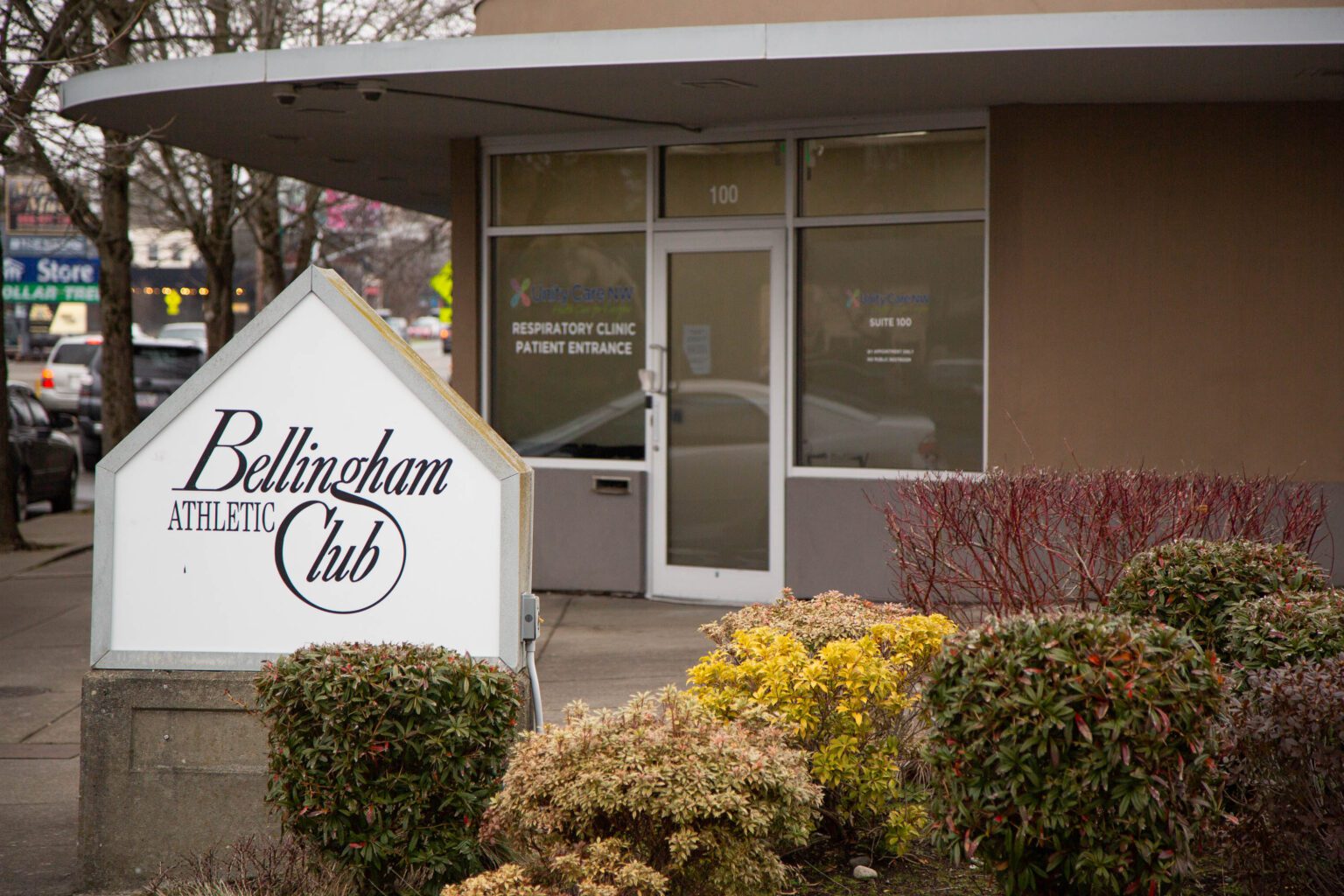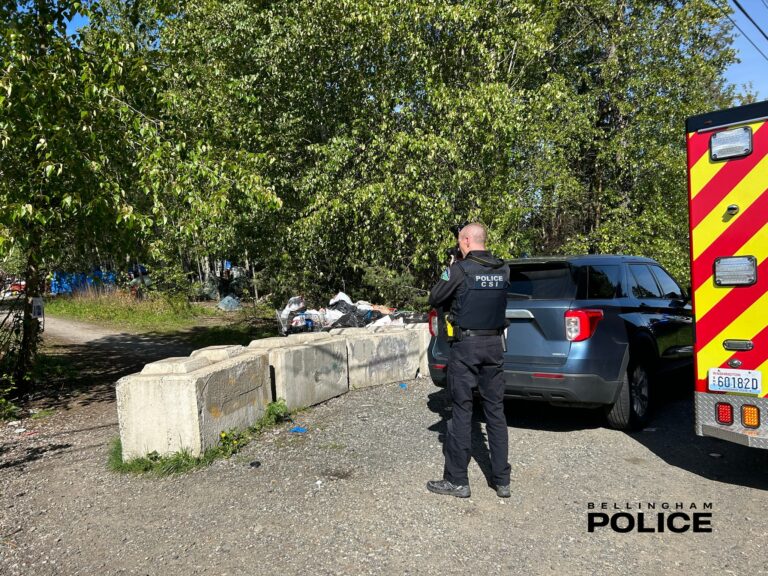Bellingham Athletic Club will close its downtown location on March 31 — the victim of pandemic concerns, water damage and a neighborhood transformed by the presence of a nearby homeless camp.
The original Cordata location at 4191 Meridian St. will remain open and get an upgrade, the owner said Monday in a message to members.
A host of problems converged on the fitness center at 1616 Cornwall Ave. over the past two years. The COVID-19 pandemic forced the club’s downtown and Cordata locations to close for several months, and lingering concerns over the spread of the disease reduced membership rolls by half.
Also, the downtown location has been beset by a string of unfortunate water problems over the past several months. A burst pipe in the bathroom of an upstairs neighbor rained water onto the reception desk early last fall. Heavy rains brought the worst flooding inside the building since the fitness center opened in 1994. And a pump that removed sewage from a trap underneath the club failed.
To understand the full scope of the problems, owner Cathy Buckley said, “You have to be a part of the Armageddon of that downtown building.”
In addition, the neighborhood has changed dramatically since the homeless shelter called Base Camp opened across the street in mid-2020, Buckley said in an interview. As she saw it, a workout facility designed for downtown’s executive class was no longer compatible with the atmosphere along that stretch of Cornwall Avenue.
Buckley said employees at the downtown Bellingham Athletic Club witnessed drug use in the parking lot. They routinely washed human feces off the sidewalk in front of the entrance. They no longer felt safe walking up to the club at 5:30 a.m. to open its doors. Four staff members quit, Buckley said, citing the constant presence of homeless people around the building.
Buckley said she had compassion for homeless people, but her frustration was mounting. She said business leaders warned the city, before Base Camp opened in July 2020, that the shelter was going to cause problems for the neighborhood. Those warnings went unheeded, Buckley said.
“You feel like, OK, we’re paying our taxes and nobody’s listening to us,” she said. “We’re spending money to rejuvenate the downtown, to get businesses there and make it a nice place to be … and we’re putting the Base Camp right in the middle of that?”
After Base Camp opened and Buckley brought some concerns to Mayor Seth Fleetwood, she said he told her to fill out the city’s homeless-report form. Reporting the presence of homeless people or tents on the property didn’t make a difference, Buckley said.
“I called the mayor, I’m saying, ‘This can’t go on,’” Buckley said. “I don’t feel like anybody cares.”
In a prepared statement to Cascadia Daily News, Fleetwood said the city was under “a great deal of pressure” to site the homeless shelter in the early months of the pandemic. A temporary shelter established nearby at Bellingham High School needed to shut down.
“We care very much about our downtown business community,” the mayor’s statement said. “We’ve met multiple times with groups of downtown business owners and managers. We feel we are making progress toward meeting their needs, through efforts such as focused work on police staffing, bringing on temporary downtown safety patrols, launching a downtown ambassador program this spring, and taking other steps to meet the challenges they describe.
“We are hearing from some that they see improvements already,” Fleetwood continued. “We are grateful for their patience and trust. We will continue to meet with, and learn from, those experiencing impacts downtown and elsewhere.
“We are sorry to see the Bellingham Athletic Club leave the downtown area and wish them well in their focus on their Cordata location,” Fleetwood said.
In her email to members, Buckley said improvements planned at Cordata include renovations to the women’s locker room, new equipment and an expanded class schedule.
Lighthouse Mission Ministries President Hans Erchinger-Davis said his organization, which runs Base Camp, meets with neighborhood businesses to hear and address their concerns. Lighthouse staff conduct litter patrols and encourage people immediately outside the shelter to come inside. But Erchinger-Davis acknowledged the problem faced by businesses surrounding Base Camp and elsewhere downtown.
“Homelessness is on the rise,” Erchinger-Davis said. “We’re seeing more people than ever before. Base Camp, which is the solution to much of these challenges, is full” — although an overflow space remains in use for now.
“We’re not sure how that’s going to be when our overflow stops operating next month,” Erchinger-Davis added.
The Lighthouse president was hopeful the street-level problem of homelessness in Bellingham would be alleviated after a larger, permanent shelter in Old Town is completed — although that project is two years or more from completion.
While acknowledging that the homelessness problem in Bellingham will be hard to solve, Erchinger-Davis said he has a stake in the success of downtown businesses. In his view, they are part of the solution.
“We need local businesses to thrive because they’re the ones that hire our people,” he said. “We absolutely need businesses, and I’ll do everything we can to be good neighbors.”




